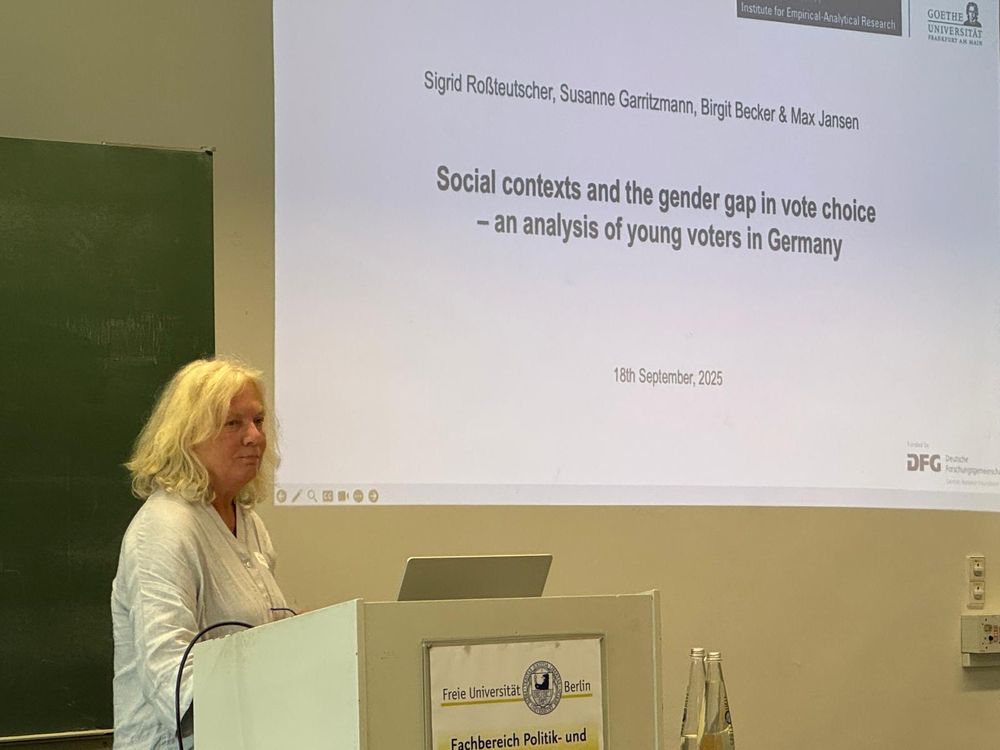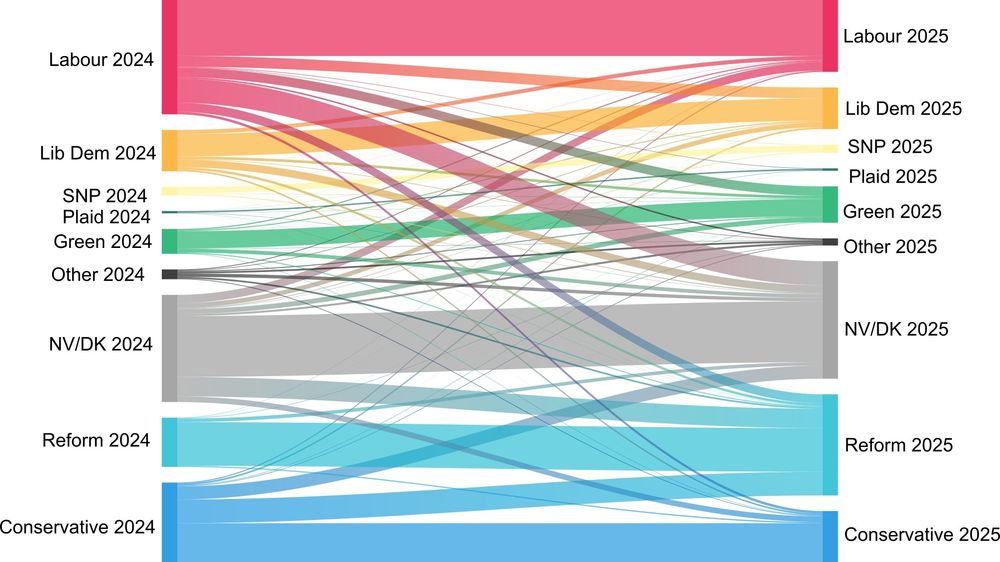Denis Cohen
@denis-cohen.bsky.social
1.9K followers
940 following
20 posts
Senior research fellow @mzesunimannheim.bsky.social. Research on spatial inequalities, electoral politics, quantitative social science. Lead organizer of the MZES Social Science Data Lab (@mzes-ssdl.bsky.social). He/him.
Posts
Media
Videos
Starter Packs
Reposted by Denis Cohen
Reposted by Denis Cohen
Reposted by Denis Cohen
Reposted by Denis Cohen
Reposted by Denis Cohen
Reposted by Denis Cohen
Reposted by Denis Cohen
Reposted by Denis Cohen
Reposted by Denis Cohen
Reposted by Denis Cohen
Reposted by Denis Cohen
Reposted by Denis Cohen
Reposted by Denis Cohen
Reposted by Denis Cohen
Reposted by Denis Cohen
Reposted by Denis Cohen
Reposted by Denis Cohen
EPSS
@epssnet.bsky.social
· Aug 7
Reposted by Denis Cohen
Denis Cohen
@denis-cohen.bsky.social
· Sep 2
Reposted by Denis Cohen
Reposted by Denis Cohen
EPSS
@epssnet.bsky.social
· Aug 1









![Roundtable Discussion: New Developments in Large-Scale Survey Data in Germany
Hybrid event [A5, 6, Room A231 + Zoom]
September 24, 2025, 13:45-15:15
Abstract
The roundtable brings together researchers from leading institutes and survey programs in Germany including the German Longitudinal Environmental Study (GLEN), the Family Research and Demographic Panel (FreDA), the Research Data Center of the Institute for Employment Research (IAB), and the Survey of Health, Aging and Retirement in Europe (SHARE). The discussion will focus on current innovations, challenges, and opportunities in large-scale survey data from the data producers’ and users’ perspective.
Presenter(s)
Claudia Schmiedeberg is a postdoctoral researcher at the Department of Sociology at LMU Munich. Her research focuses on survey methodology, environmental topics, and couple relationships.
Pablo Christmann is the project coordinator of FReDA – The German Family Demography Panel Study and a postdoctoral researcher at GESIS. His main research interests include political attitudes as well as survey methodology and methods.
Stefanie Wolter is a senior researcher at the Research Data Center of the Federal Employment Agency. She is project head of the Linked Personnel Panel, and responsible for linking enterprise and establishment data. Her research focuses on flexible work and within-firm inequality.
Michael Bergmann is a survey methodologist with a doctorate in social sciences from the University of Mannheim. As part of a joint appointment by htw saar and SBI, he works as head of the Survey Methodology department for the Survey of Health, Ageing and Retirement in Europe (SHARE) and as professor of survey methodology at the Faculty of Social Sciences. His research interests include methods for improving the quality of survey data, the investigation of the effects of different survey modes on data quality in panel studies, and the analysis of interviewer behavior. In terms of content, he is primarily …](https://cdn.bsky.app/img/feed_thumbnail/plain/did:plc:oizrkjzyr6vekl76tjctghcl/bafkreigmoyska5t5x3cuyoxezazksxqcinxg7dgeoitepbcw4hftfylao4@jpeg)


![Assessing the Reproducibility of Observational Social Research
Hybrid event [A5, 6, Room A231 + Zoom]
September 10, 2025, 13:45-15:15
Abstract
Reproducibility – i.e., the extent to which results are consistent when re-running the same code on the same data – is a minimum requirement for credible empirical research. However, as prior audits have tended to look at selective samples, only little is known so far about its extent in the observational social sciences. In this input talk, I present insights from a large-scale reproducibility assessment of published social science papers that use data from the European Social Survey (ESS). Starting from an initial pool of 1,206 articles, we obtained research code for 385 papers and conducted a standardized reproducibility assessment on a random sample of 100. I will present insights into our method and our results, highlight common hurdles and pitfalls we encountered, and conclude by discussing low-cost measures that could help improve reproducibility at scale.
Presenter(s)
Laura Schächtele is a PhD candidate in Sociology at the LMU Munich and part of the DFG-funded meta-scientific research program META-REP. She holds a master’s degree in Sociology from the LMU Munich and has been a visiting researcher at the Meta-Research Center at Tilburg University. In her dissertation, she investigates the links between academic incentive structures, researchers’ strategic behavior, and scientific transparency. Her broader research interests include the sociology of science, social inequality, and quantitative methods of empirical social research](https://cdn.bsky.app/img/feed_thumbnail/plain/did:plc:oizrkjzyr6vekl76tjctghcl/bafkreie66sio5k5bkn7g7lhjn3dafo3eam5supiamg7jprotikx2qucgae@jpeg)





